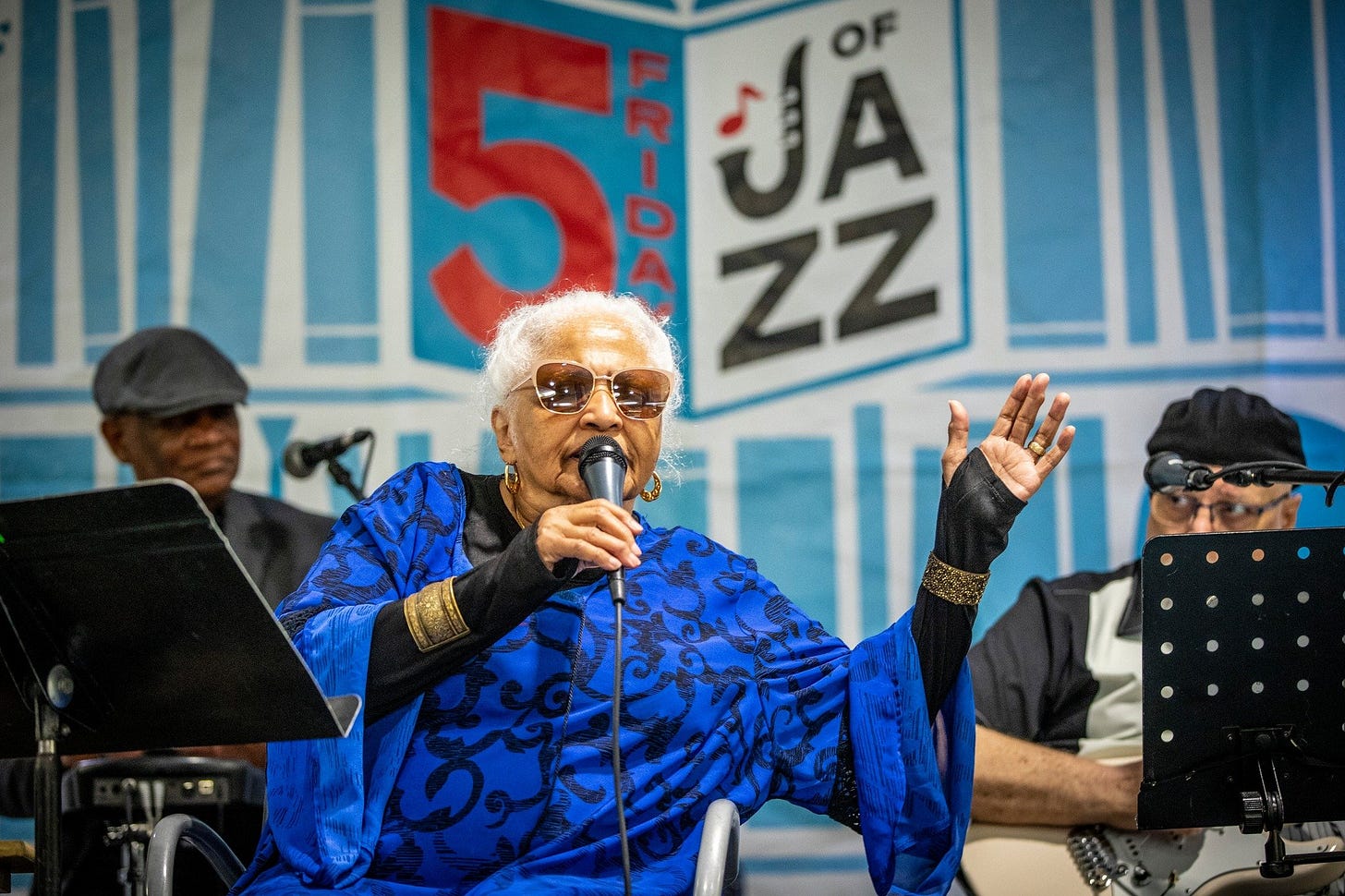This post is the first in a three-part series adapted from my recent talk at Town Hall Seattle, titled "Meet Me at the Library: A Civic Love Letter in an Age of Isolation." Check back next week for part two, and if something resonates, I’d love to hear your thoughts in the comments.
About seven years ago, I walked into the Benjamin L. Hooks Central Library in Memphis—not for a panel, not for a meeting, but for something entirely different: Five Fridays of Jazz. Picture this: a month-long concert series in the library, complete with musicians who carry the soul of Memphis in their instruments and rhythms that shake the walls in the most sacred way.
The library that night was alive. Tables were full, conversations buzzing, music flowing. I saw church mothers swaying next to startup founders. Students nodding alongside retirees. Every demographic and disposition in one room, not tolerating each other—but belonging together.
That night, something shifted in me. I stopped seeing libraries as just places of information. I began to see them as the last great third place—as spaces that don’t just reflect community, but create it.
But let’s be honest: libraries are often treated like the kale of social infrastructure. Good for you, but rarely craved—until you really need them. A job loss. A homework emergency. A moment of reinvention. And when people find their way back, they’re shocked to discover what’s there now.
It’s not just books. It’s jazz ensembles and coding clubs. Genealogy workshops and knitting circles. DJ residencies and notary services. You might even stumble across someone checking out a fishing pole or a KitchenAid pasta attachment (no, seriously).
And it’s happening in libraries right now. Just this week, Seattle Public Library offered storytime for toddlers, multilingual play groups, programming workshops, creative writing meetups, and adult coloring events designed to spark connection.
Libraries are evolving with empathy, equity, and HDMI cables.
We still have books—thank God. But they are the roots, not the branches. The branches? They’re innovation, healing, small business support, democracy-building.
And that’s not theory. At the Urban Libraries Council, I’ve worked on a tool that quantifies how libraries support small businesses. We found $17 million in economic impact across just nine library systems. From launching veterinary clinics to inventing razor cleaners on Navy ships, real people are using libraries to build their dreams.
The libraries of your childhood? They’re still here. But now, they’ve been upgraded with 3D printers and startup grants. And above all, they’re offering a radical, quiet rebellion against isolation.
They offer belonging.
They offer hope.
They offer a seat with your name on it.
Next week in Part 2, I’ll share the story of a once-in-a-lifetime library renovation, what Harvard taught me about public space, and why we must see libraries as civic infrastructure. In the meantime, drop a comment—what’s the last beautiful thing you witnessed at your local library?





Delicious post :) How can I find out more about this tool that quantifies how libraries support small businesses?